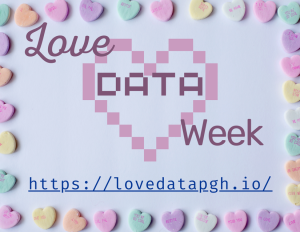The HSLS Staff News section includes recent HSLS presentations, publications, staff changes, staff promotions, degrees earned, and more.
News
Farewell to Arlie Chipps, Library Specialist, who is leaving the HSLS Technology Help Desk team to become the CAUSE Program Coordinator at Carnegie Mellon University.
Publications
Ansuman Chattopadhyay, Program Director for Molecular Biology Information Services, coauthored the article:
Kharel P, Singhal NK, Mahendran T, West N, Croos B, Rana J, Smith L, Freeman E, Chattopadhyay A, McDonough J, Basu S. NAT8L mRNA oxidation is linked to neurodegeneration in multiple sclerosis. Cell Chem Biol. 2023 Feb 24:S2451-9456(23)00056-9. doi: 10.1016/j.chembiol.2023.02.007. Epub ahead of print. PMID: 36882060.
Continue reading →



